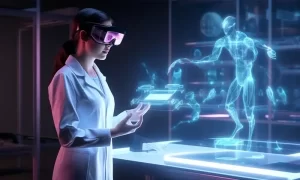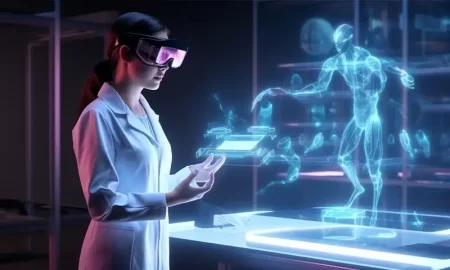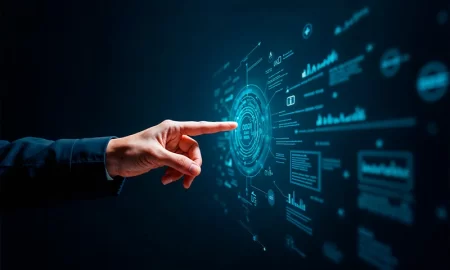The computer revolution has brought about significant changes in our lives, revolutionizing the way we work, communicate, and access information. With the advancement of technology, computers have become an integral part of our daily routines. In this article, we will delve into the transformative impact of the computer revolution and explore the ways in which it has shaped various aspects of our society and paved the way for an exciting future.
The Evolution of Computing
Computing has come a long way since its inception. From the early days of room-sized mainframe computers to the powerful and portable devices we have today, the evolution of computing has been remarkable. With each advancement, computers have become faster, smaller, and more capable, enabling us to perform complex tasks with ease.
Enhancing Communication and Connectivity
One of the most significant impacts of the computer revolution is the enhancement of communication and connectivity. The advent of the internet has revolutionized the way we connect with others, bridging gaps and bringing people from different corners of the world together. Social media platforms and instant messaging apps have made it easier than ever to stay connected with friends, family, and colleagues, regardless of geographical boundaries.
Transforming the Workplace
Computers have completely transformed the way we work. With the automation of various processes and the introduction of sophisticated software tools, tasks that used to take hours can now be completed in a matter of minutes. From data analysis and project management to customer relationship management, computers have revolutionized the workplace, increasing efficiency and productivity.
Empowering Education
The computer revolution has also had a profound impact on education. Traditional methods of teaching and learning have been revolutionized with the integration of computers into classrooms. Interactive educational software, online learning platforms, and virtual classrooms have made education more accessible and engaging. Students now have the opportunity to explore subjects in depth, collaborate with peers, and access vast amounts of information at their fingertips.
Revolutionizing Healthcare
In the field of healthcare, computers have revolutionized the way medical professionals diagnose and treat diseases. Advanced medical imaging technologies, such as MRI and CT scans, have become essential tools in providing accurate diagnoses. Electronic medical records have streamlined patient information management, making it easier for healthcare providers to access and share critical data. Additionally, telemedicine has emerged as a convenient way for patients to receive medical advice and consultations remotely.
Impact on Entertainment and Media
The computer revolution has transformed the entertainment and media industries in profound ways. With the rise of streaming platforms, such as Netflix and Spotify, consumers now have instant access to a vast library of movies, TV shows, and music. The digitalization of media has also empowered content creators, allowing them to reach a global audience and distribute their work more efficiently.
Shaping Transportation and Logistics
Advancements in computer technology have significantly impacted the transportation and logistics sectors. From self-driving cars and trucks to efficient route optimization algorithms, computers have made transportation safer, more efficient, and more environmentally friendly. Additionally, logistics companies now rely on sophisticated computer systems to manage inventory, track shipments, and streamline supply chains.
Exploring Artificial Intelligence and Machine Learning
Artificial intelligence (AI) and machine learning (ML) have emerged as key areas of research and development in the computer revolution. AI-powered systems can perform tasks that traditionally required human intelligence, such as speech recognition, image processing, and natural language understanding. ML algorithms enable computers to learn from data, making them increasingly capable of making accurate predictions and providing personalized recommendations.
Ensuring Cybersecurity
As technology continues to advance, the importance of cybersecurity becomes paramount. With the increasing reliance on computers and interconnected systems, the risk of cyber threats and attacks also grows. Cybersecurity measures, such as encryption, firewalls, and intrusion detection systems, play a crucial role in safeguarding sensitive data and protecting individuals, businesses, and governments from malicious activities.
The Future of the Computer Revolution
The future of the computer revolution looks promising. Emerging technologies, such as quantum computing, augmented reality, and the Internet of Things (IoT), have the potential to further revolutionize various industries and aspects of our lives. Quantum computers may solve complex problems that are currently intractable, while augmented reality can transform how we interact with the digital world. The IoT will connect everyday objects, creating a network of interconnected devices that enhance convenience and efficiency.
Conclusion
The computer revolution has undoubtedly had a transformative impact on our society. From revolutionizing communication and transforming the workplace to empowering education and shaping various industries, computers have become an indispensable part of our lives. As we move forward, it is crucial to embrace these advancements, harness their potential, and address the challenges they bring. The future is indeed here, and the possibilities it holds are endless.












